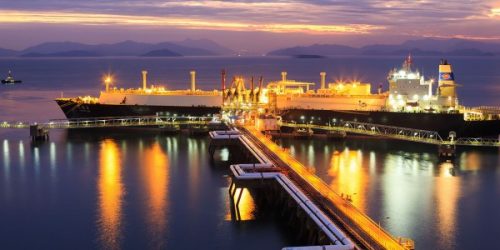U.S. regulators have approved a request from Kinder Morgan to authorize the start of the seventh train of the Elba Island liquefied natural gas (LNG) export plant in Georgia, Reuters reported on Friday.
Kinder Morgan owns 51 percent in the Elba Island LNG project which cost around US$2 billion. Trains one through six are already operational, with four more planned for this year, Kinder Morgan said earlier this year.
Elba Island began LNG exports in December last year, but hasn’t exported superchilled fuel from the facility since January because the pandemic and the economic recession in many parts of the world depressed demand for natural gas.
Historically low natural gas prices from Asia to Europe and lower demand in the pandemic have resulted in U.S. exports of LNG crashing by more than 50 percent this year, the EIA said last month.
Last year, the U.S. became the world’s third-biggest LNG exporter after Qatar and Australia. Three of Elba Island’s small-scale moveable modular liquefaction system units are expected to come online later this summer, the EIA said in June. The new units at Elba Island, together with the third train at Freeport LNG in Texas which began commercial operations in May 2020, will boost America’s overall liquefaction capacity to 8.9 billion cubic feet per day (Bcf/d) of baseload LNG export capacity and 10.1 Bcf/d of peak export capacity, according to EIA estimates.
Earlier this month, the U.S. Department of Energy issued a final long-term order to authorize LNG exports from a project in Oregon that are expected to boost U.S. gas supply to the fastest-growing import market, Asia.
Jordan Cove LNG, expected to come online in 2025, is poised to create 6,000 jobs during peak construction and an estimated 8,500 spin-off jobs in sectors like hospitality, retail, tourism, and healthcare, the project owner Pembina Pipeline Corporation says.
The project, however, continues to face opposition, including from citizen organizations, Oregon lawmakers, and the state of Oregon, which has yet to issue vital permits for the project.





